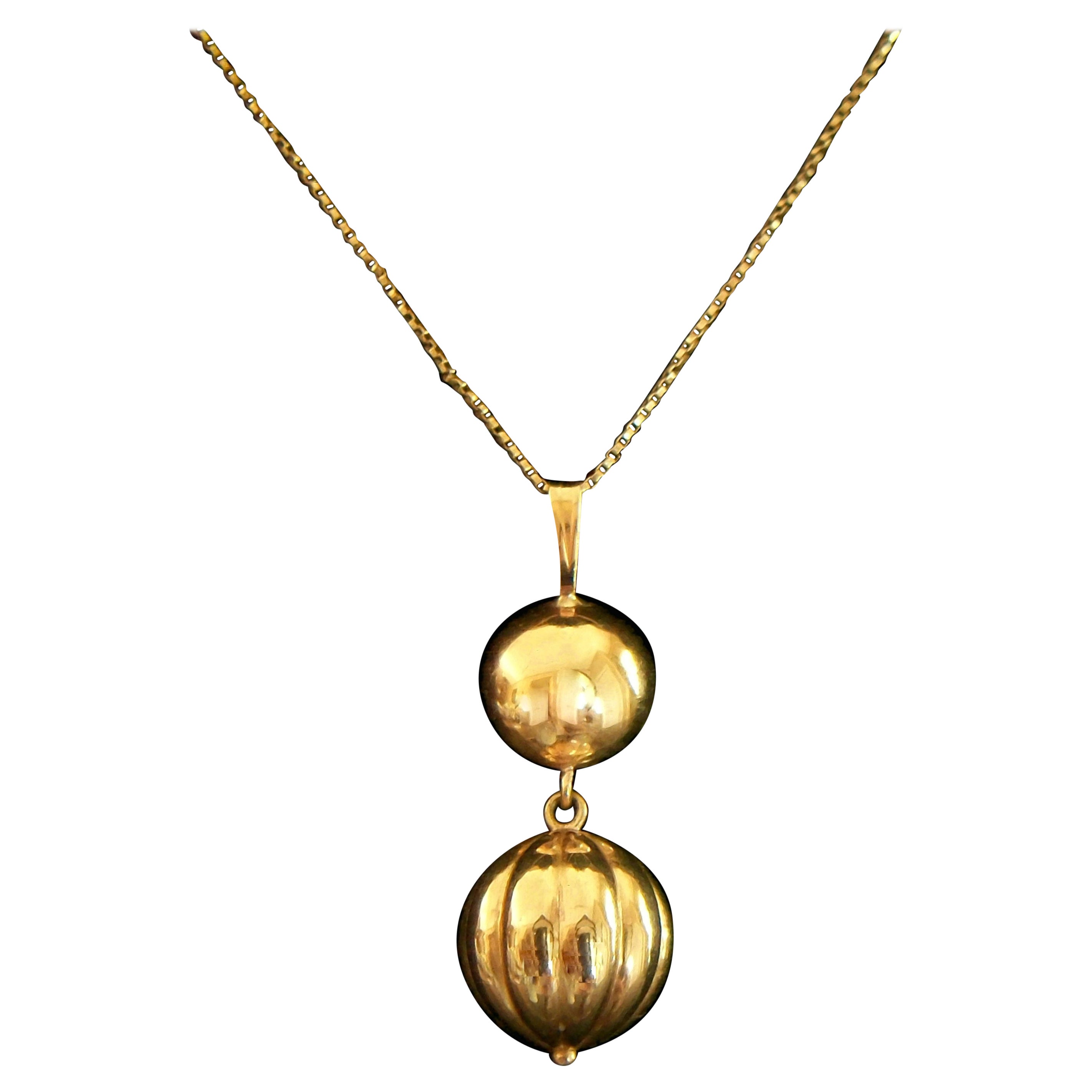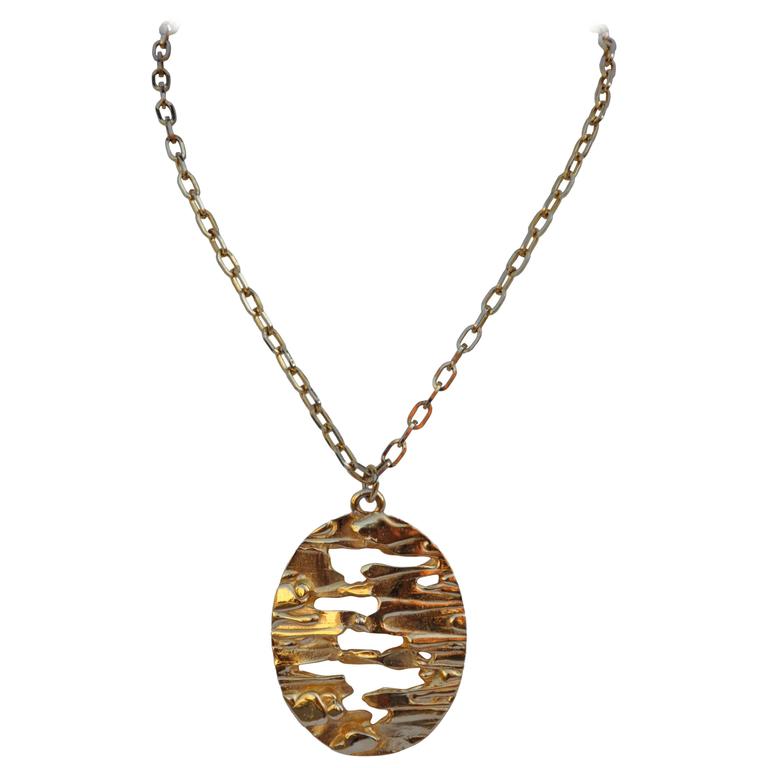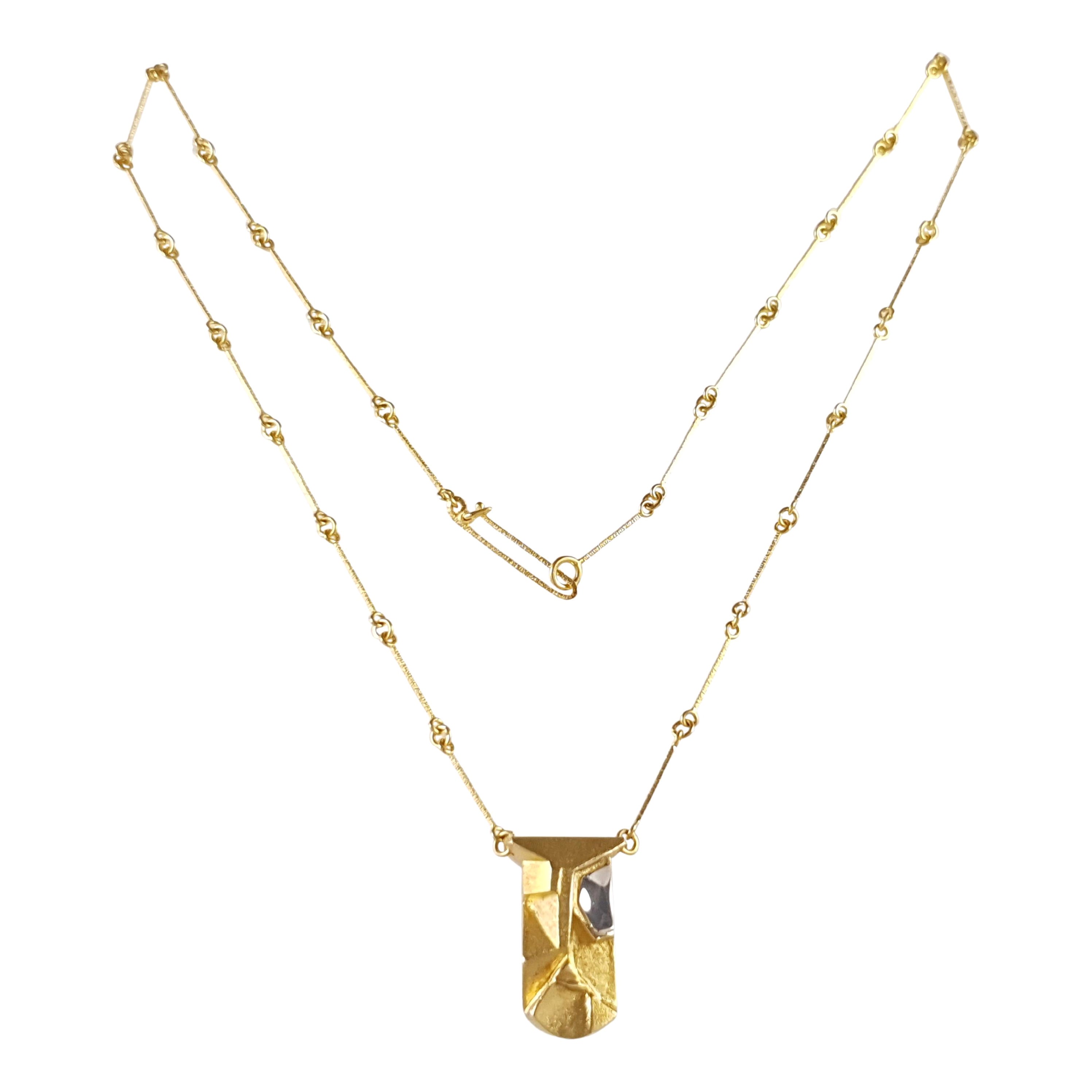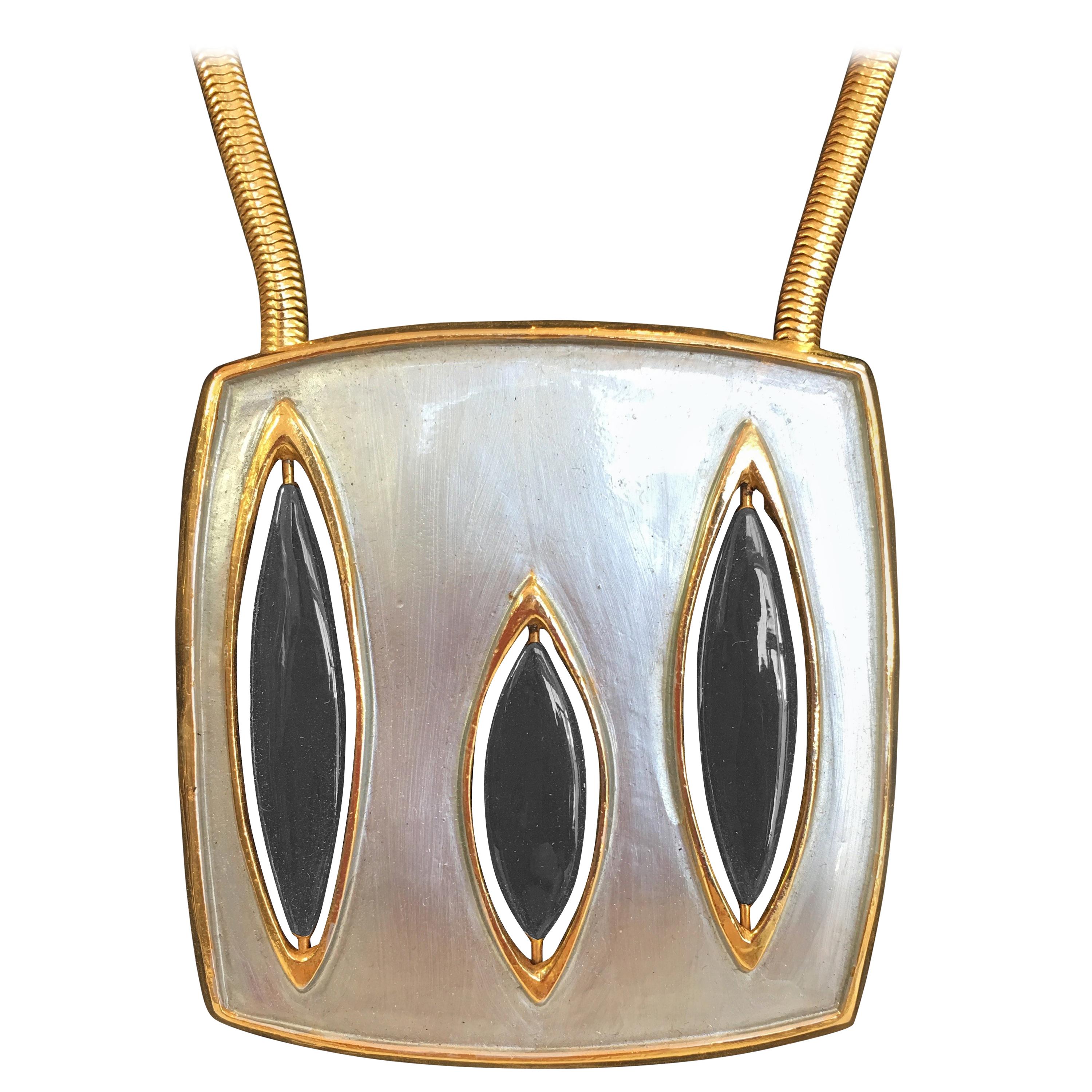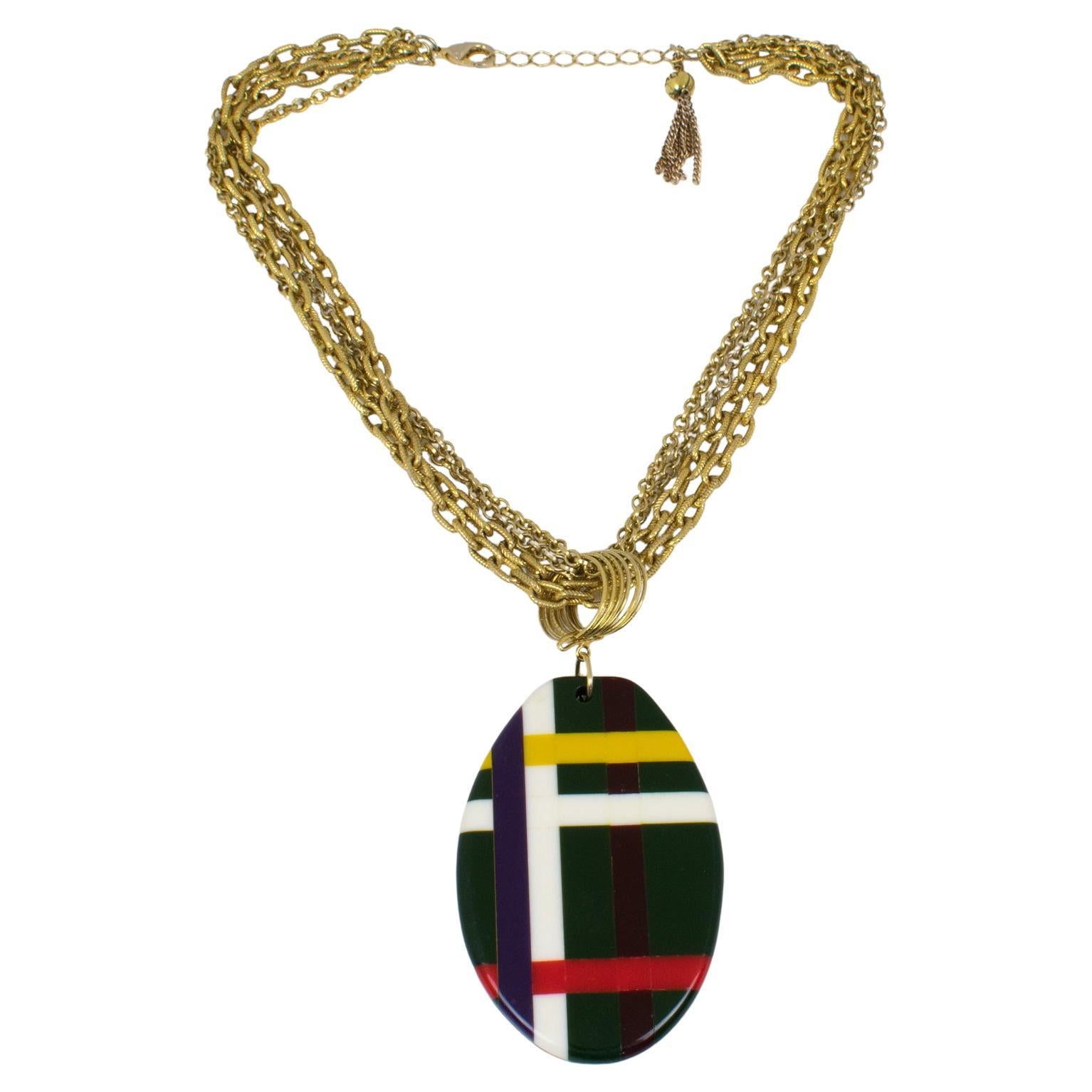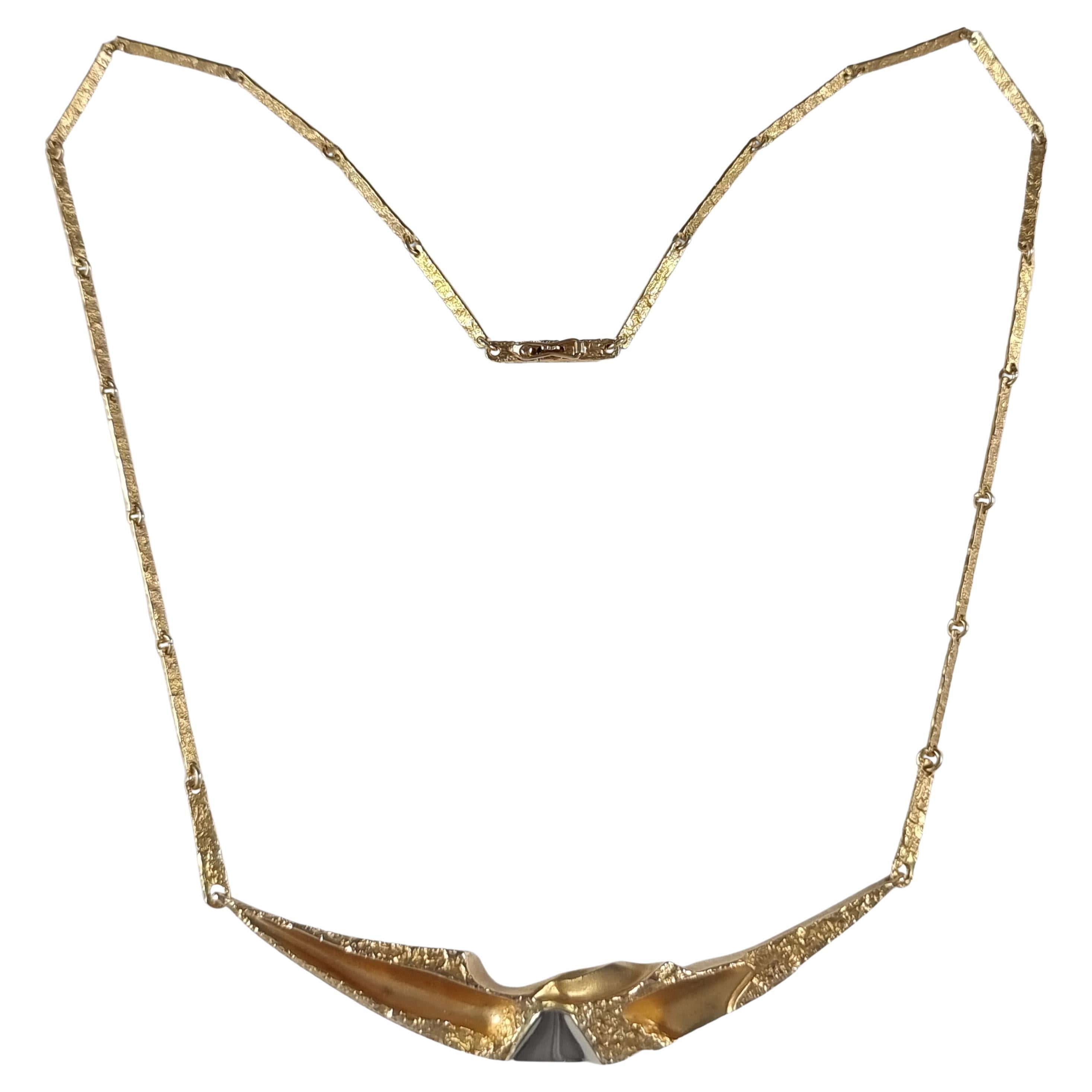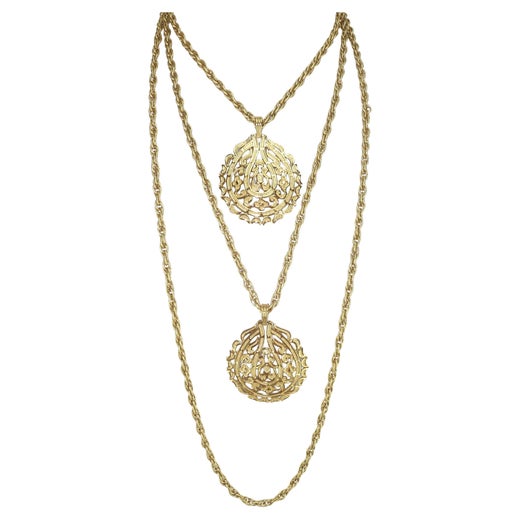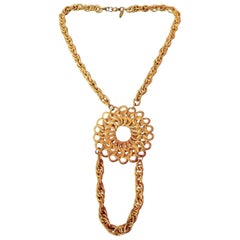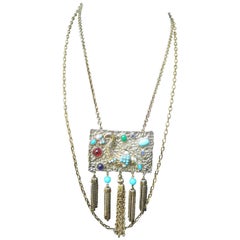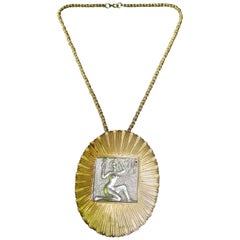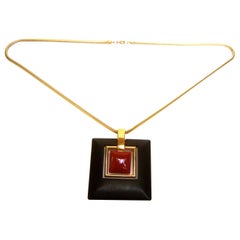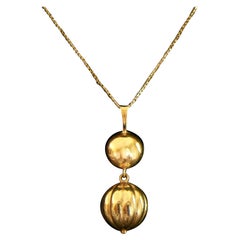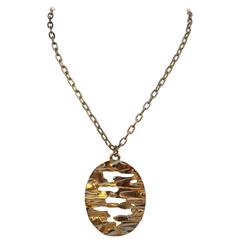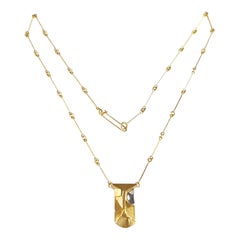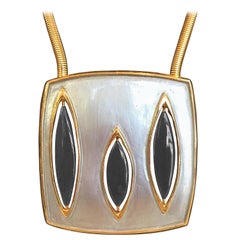Trifari Sleek Gilt Metal Lucite Pendant Necklace c 1970
About the Item
- Creator:
- Metal:
- Style:
- Place of Origin:
- Period:
- Date of Manufacture:c 1970s
- Condition:Wear consistent with age and use.
- Seller Location:University City, MO
- Reference Number:1stDibs: LU7361843373
Trifari
Costume jewelry maker Trifari is widely loved for its fine craftsmanship and complex designs for necklaces, brooches and other jewelry and accessories.
The company was formed in New York during the early 1920s, when its partners Gustavo Trifari (who descended from a family of jewelers), Leo Krussman and Carl Fishel (business associates in hair-ornament manufacturing) recognized, as other designers during the Art Deco era such as Gabrielle “Coco” Chanel had, that fashion trends for affordable jewelry for everyday wear represented an opportunity (and that the popularity of shorter hairstyles didn’t bode well for their haircomb business).
Initially called Trifari, Krussman and Fishel Jewelry (T.K.F.), the trio eventually shortened their brand’s name, at the suggestion of an advertising professional, to Trifari in order to evoke the romance of Gustavo’s native Italy.
The hiring of French designer Alfred Philippe as head designer in 1930 was pivotal to Trifari’s success. A master craftsman who had worked with both Cartier and Van Cleef & Arpels, Philippe set about establishing the same high-quality standards of materials and craftsmanship in the design of fashion jewelry and trained other Trifari artisans to do the same. Settings were delicate; crystals were hand set; designs, which sometimes featured dazzling floral motifs or exquisite depictions of marine life, were sophisticated and elegant, having both the look and feel of fine jewelry. First Lady Mamie Eisenhower wore a Trifari parure of faux pearls to her husband’s presidential inauguration in 1953 and Trifari glass pearls to his inaugural ball in 1957.
Before retiring in 1968, Philippe created Trifari’s most recognizable designs. In the 1930s, when the company was custom-making accessories for the stars of Broadway musicals, it was the crown motif: These brooches became so often identified with the brand that a crown was eventually incorporated into the trademark. In the 1940s, the “Jelly Bellies” inspired affection as well as knockoffs; these were animals, birds and insects sporting a “belly” of clear Lucite. Clip-Mates were another favorite and a technical marvel — two dress clips that, joined together, created a brooch.
Find a wide range of vintage Trifari jewelry on 1stDibs.
- ShippingRetrieving quote...Shipping from: University City, MO
- Return Policy
More From This Seller
View AllVintage 1970s American Chain Necklaces
Gilt Metal
Vintage 1970s Unknown Egyptian Revival Pendant Necklaces
Base Metal
Vintage 1970s American Pendant Necklaces
Gilt Metal
Vintage 1970s American Pendant Necklaces
Gilt Metal
Vintage 1980s French Modern Pendant Necklaces
Crystal, Gilt Metal
Vintage 1980s French Artisan Chain Necklaces
Agate, Gilt Metal
You May Also Like
Late 20th Century American Modernist Pendant Necklaces
10k Gold, Yellow Gold
Vintage 1980s American Pendant Necklaces
Early 2000s Finnish Modern More Jewelry
Gold, 14k Gold, White Gold, Yellow Gold
Vintage 1960s French Modernist Pendant Necklaces
Vintage 1980s Italian Modernist Pendant Necklaces
Gilt Metal
Vintage 1980s Finnish Modern Pendant Necklaces
Gold, 14k Gold, Yellow Gold
